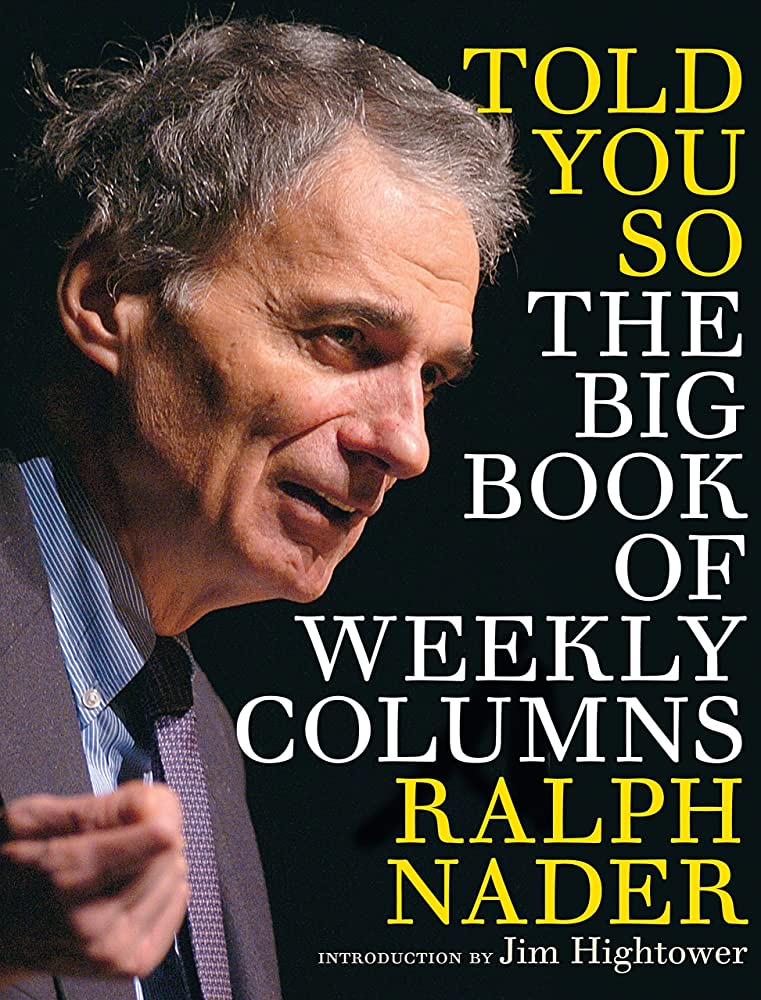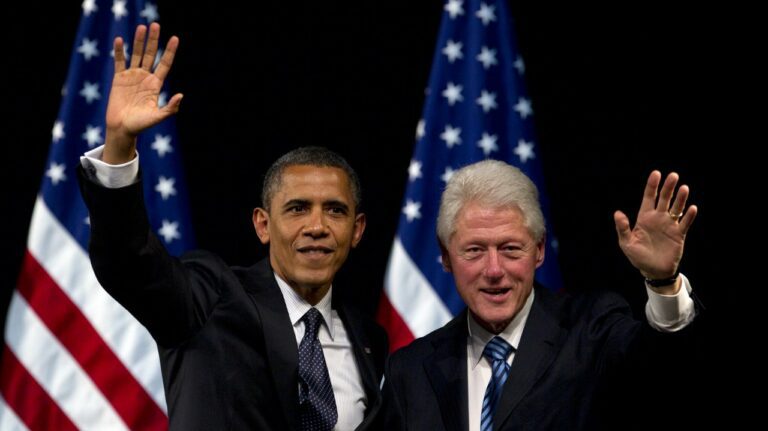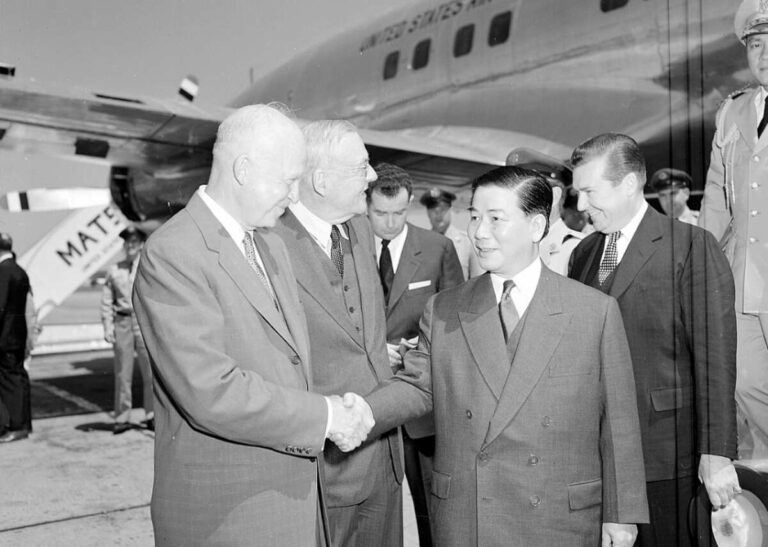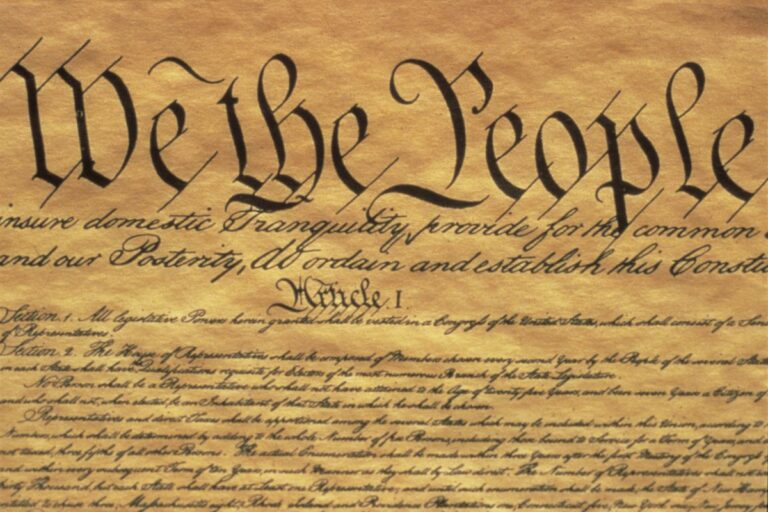This is an episode of Reality Asserts Itself, produced on December 18, 2013. On Reality Asserts Itself with Paul Jay, Ralph Nader says McCarthy’s reign of terror made people seek empirical change, like seeking legislative reforms to make safer cars, to avoid being associated with socialism.
PAUL JAY, SENIOR EDITOR, TRNN: Welcome to The Real News Network. I’m Paul Jay in Baltimore. And welcome to Reality Asserts Itself.
Ralph Nader first made headlines in 1965 with his book Unsafe at Any Speed, a scathing indictment that lambasted the auto industry for producing unsafe vehicles. The book led to congressional hearings and automobile safety laws passed in 1966, including the National Traffic and Motor Vehicle Safety Act. In his career as consumer advocate, he founded many organizations, including the Center for Study of Responsive Law, a public interest research group; Project for Corporate Responsibility; and Public Citizen. His legislative accomplishments also include the Clean Air Act (1970); Occupational Safety and Health Act (1970), which also pushed for the establishment of the Environmental Protection Agency in 1970; the Freedom of Information Act in 1974; the Clean Water Act (1977); Foreign Corrupt Practices Act in 1977; the Mine Safety and Health Act (1977); the Whistleblower Protection Act (1989); and the Occupational Safety and Health Administration. Nader was also a leading figure in the antinuclear movement of the 1970s and ’80s, advocating for the total abolition of nuclear and fossil fuel energy in favor of energy conservation, solar energy, tidal, wind, and geothermal sources. He’s also the author of several books, including Only the Super-Rich Can Save Us!, The Seventeen Solutions: Bold Ideas for Our American Future, and his most recent collection, Told You so: The Big Book of Weekly Columns. He’s also a four-time candidate for the president of the United States. And he continues to be an outspoken critic of corporate power and its political influence over U.S. politics.
And he joins us now in our studio in Baltimore.
Thanks very much for joining us, Ralph.
RALPH NADER, POLITICAL ACTIVIST, AUTHOR, AND ATTORNEY: Thank you, Paul.
JAY: So, most viewers know we usually start with people that we–haven’t done Reality Asserts Itself before. Our first segment’s a little biographical, and then we get more into segments about what our guests think.
Now, people have had an opportunity, those who–and I would–a lot of our audience, they probably know a lot about your history. And if you haven’t watched the documentary An Unreasonable Man, it’s a pretty good way to get a sense of Ralph’s background. And if we did a biography of you, we would–and talked about it, we’d need about a month of segments.
So I’m going to kind of jump to a couple of things and just focus on them. Just to begin with, I know from watching the film, your mother was an activist, your father was very political, and they would ask you–I think, at dinner, they–you’d have to kind of prepare for a topic, you know, have an opinion and do some research. But what was the politics of it? You’re born in ’34. You start to become aware of the world during the war. There’s a massive antifascist movement. There’s politics of all kinds. There’s socialist politics and communist politics. And it’s a fervent of ideas. What’s in your house? How would you describe the kind of political spectrum?
NADER: Well, people showed up in those days. The sidewalks were full, the stores were full. You didn’t have shopping malls. You didn’t have iPhones. You didn’t have television. So they had to eyeball each other. And when you eyeball people and you want to improve things, good things happen. So that was the atmosphere I grew up in.
World War II was interesting, ’cause Franklin Roosevelt would ask for sacrifice, and, you know, we would see rationing of meat, a rationing of other products. So more people started gardens. We had chickens in the back yard. I had to water the chickens early in the morning. You know, we saved paper. We saved string. We saved tinfoil.
So I was, you know, eight, nine, ten years old. That’s a good way to grow up. You learn frugality. You learn what now is called recycling. You learn discipline.
JAY: And what was the–sort of your consciousness and discussion in the house of the antifascist character of the war and that kind of politics?
NADER: Well, it was, I mean, really a vigorous pronouncement that this was a good war. We were attacked–Pearl Harbor. You know, the Nazis were swarming over Europe, going into Russia. So we’ve never seen that since. I mean, very few people were really against the war. There were isolationist, don’t get mixed up in Europe’s war. But everything changed after Pearl Harbor in December 7, 1941, and some of our ships were attacked by German subs. So it was viewed as a defensive war. It wasn’t, you know, going with drones all over countries in Asia and Africa and, you know, breaking through countries that never threatened us, attacking people. No. It was a different type of attitude.
JAY: Now, as a teenager, you start becoming–you know, growing up, your formation of your political ideas in a somewhat more mature way. It’s becoming the height of the Cold War. You know, after–you know, in the ’40s and leading up to the House Un-American Activities Committee and McCarthy hearings, how did this shape/affect you?
NADER: Well, it’s really amazing that one senator, Senator Joseph McCarthy, who defeated La Follette in Wisconsin on the grounds that he was too liberal–that he wasn’t liberal enough, rather, that La Follette was not liberal enough. Joe McCarthy, it was like a reign of terror. He’s scared people. He intimidated people. He ruined people’s careers through his highly publicized congressional hearings, his wild accusations anonymously against people in the federal government.
But, you know, it spilled over. I mean, there were students at university, college, they didn’t want to show up at what they thought were activist symposiums. They didn’t want to do any marching. They just–they figured, you know, they’d be stigmatized as soft on communism or, you know, reds.
And the overall impact was–on the progressives and liberals was it made them veer away from any kind of systemic public philosophy to change things for the better. So they just became very empirical. They’ll try to get a labor union organized or try to get better working conditions or something like that because they didn’t want to be accused of isms, you know, like socialism or communism. And the other side was, of course, they were all about capitalism.
So just amazing effect, Joe McCarthy and his acolytes, not just on civil liberties, but on the whole mindset of people.
JAY: And how did it affect your mindset?
NADER: Well, it affected it in the sense that you didn’t come forth with any doctrine of social change, because if you had any kind of coherent doctrine or platform, they would label it as a ism. You know, it would be socialism or any kind–syndicalism. You know? So we became very empirical. You know, we went after the auto companies’ unsafe cars. No ism there. People are being killed every day, injured because of unsafe cars, lack of seatbelts and padded dash panels.
And that has affected the left all the way to the present day, whereas the right wing, they’ve got this capitalism–although, you know, it’s–corporate capitalism is the antithesis of capitalism. I mean, owners of corporations, they have no control, the shareholders have no control over General Electric or IBM or General Motors.
So it really had an amazing impact. As a result, there were no big thinkers on the left the way the right wing had Friedrich Hayek, even though they distorted what a lot of–Ludwig von Mises and so forth.
JAY: In the ’60s, with the rise of the civil rights movement, the antiwar movement, there was a very politicized sector, especially on the campuses with students, and globally there’s national liberation wars going on. You must be having these arguments about a more systemic analysis, a more systemic approach versus specific reforms.
NADER: Well, even the ’60s. Number one, it was the Cultural Revolution, so they couldn’t really say ism. You know, they might say [‘wAstr@lIzm] or, you know, anarchism, but, you know, it wasn’t some foreign ideology.
The other part was concrete reforms, civil rights, women’s rights, the beginning of gay-lesbian rights, the rights of students on campus, and then consumer rights, and then environment. You see how programmatic it was. Everybody avoided linking it together and basically saying, you know, big-time corporate capitalism is an omnicidal momentum. I mean, it just has one thing in mind, and it will destroy or weaken or co-opt anything in its way that is civic, that is democratic.
JAY: In terms of your own beliefs, if we’re talking this period of the ’60s and, you know, leading into all the great list of legislative accomplishments, but in terms of your own thinking, did you believe this was a reformable system, that step by step you would have these pieces of legislation and more people would wake up, and you would kind of get to a form of capitalism that you hoped it would be?
NADER: No, because, I mean, my father was a restaurant owner, and small capitalism is nothing like giant multinational global capitalism. That’s a completely different animal that has to control government to turn it against its own people, ’cause government was basically the only countervailing force to these big corporations.
So I believe that certain things could be ameliorated. I mean, cars could be made safer, food cleaner, medicines tested better, air cleaner, water cleaner, things like that, because it didn’t go to the fundamentals of corporate capitalism, although sometimes they would indicate, oh, this was terrible, you know, it’s going to end the–Henry Ford said it was going to end the auto industry to put some safety devices, going back to World War I when they were invented, like seat belts in cars. Yeah. I mean, I was quite aware of that.
And I was ready for the backlash. I told the reporter for The Detroit News, Saul Friedman, once, I said, we’re pushing for regulation of big business to demonstrate that it wouldn’t work after a few years. It would just work at the beginning, and then the counterattack, lobbyists, campaign contributions, all the things that corporations do to get back their position.
JAY: But you hoped it would lead to something more transformative in the future.
NADER: I did. I hoped for a cooperative economy, you know, where people own their own businesses, co-ops, food co-ops, insurance co-ops, you know, the way they developed in Switzerland and Norway and Sweden. But that took too much time. It reminded me of Oscar Wilde, who once said socialism will never work, ’cause it requires too many meetings. And that’s part of it.
The other part is corporations have been very clever A) in distracting people, especially young generation, with entertainment, with professional sports, turning them into spectators. Now you’ve got, you know, 24/7 entertainment. There’s no end to it. And they’ve also been very good in making people internalize a sense of powerlessness. And the moment people think they can’t fight Exxon or City Hall or whatever, they become powerless by definition. They create their own powerlessness.
And so this whole growing movement for a higher minimum wage now–. I mean, I’ve been saying for years, you know, what’s wrong with the labor unions? What’s wrong with the 30 million workers today who are making less today than workers made in 1968, adjusted for inflation, even though the productivity has doubled for workers? Why? Because they thought it would take a huge effort to turn around Walmart and McDonald’s and the Congress.
And what’s beginning to be shown down now: it doesn’t take that much effort at all. Already they’re–it’s becoming–rising to the top three or four issues for the Democrats. And why? Because you had, like, four or five thousand workers once in a while getting out and demonstrating against McDonald’s or having one-day strikes.
And what we’ve been doing in Washington, getting the D.C. City Council–they just, you know, unanimously came behind a $11.50 minimum wage–it’s now $8 or so–in the District of Columbia over three years. We haven’t won yet, but the amount of effort put in is, like, pipsqueak. And if you made ten pipsqueaks, you’d win. I mean, this book I wrote, Seventeen Solutions, I wanted the title subtitle to be: it’s easier than you think, people. But, you know, just think you’re a little bit more powerful.
The Constitution starts “We the People”, not We the Corporation. They don’t even mention the corporation or a company in the Constitution. So why do they rule us? Because we have disempowered ourselves by making excuses for ourselves. Oh, it doesn’t pay to vote, because it doesn’t mean anything to us. Oh, why go to a city council meeting? It doesn’t matter. That’s exactly what the big boys want you to do. They’ll pay you to be cynical if you don’t do it free.
JAY: The legislative accomplishments–I went through the dates: ’66, ’70, ’74, ’77. What happened after that? In terms of America, what happened after that?
NADER: Simple. Congress changed because of Tony Coelho, who was a congressman from California, who was head of the House campaign finance fund for the Democrats. And he persuaded them to start pitching corporations and corporate executives. He said, if the Republicans can get plenty of money, we can get plenty of money. So he’d go to these PAC meetings in Washington, and they would basically ask for contributions, up to $5,000 minimum per candidate, and the PACs would say, well, how are you on the oil depletion allowance? And are you for more regulation of drugs, medicines? What are you on the tax issue? Just corrupted, with Reagan becoming president, too, in the ’80s. And you could see it was harder and harder to get congressional hearings, harder and harder to get decent judges to hear your case, harder and harder to get regulatory agencies to issue safety standards or even to make investigations.
So money really corrupted the Democratic Party, because before that, they got most of their money from big labor, and the Republicans got it from big business. Now it’s, like, 40 times more money comes from commercial sources than from labor.
So we started seeing the doors close in Washington. And we’d work harder and harder, we’d start a lot of citizen groups, file lawsuits, and we’d achieve less and less.
JAY: Post World War II, there was–the world was American capitalism’s oyster to be opened. Europe was devastated, Japan was devastated, the Soviet Union was devastated. I mean, America is the behemoth industrial power, in fact the only industrial power for a long time. But by the time you get to Reagan, you now have this kind of globalized economy. But earlier, there’s a lot of wealth to share with American workers. Like you could–you know, like, for the American elites you can say there was a–you know, for peace at home, we can give in on some of this stuff. But Reagan seems to represent a kind of moment where there’s a realization in the elites, hey, we don’t have to share this with them; they’re too weak.
NADER: Yeah. And when he fired the air traffic controllers and jeopardized the whole airways–and luckily there weren’t any crashes, which is why I think Reagan was born with a four-leaf clover in his diaper.
JAY: Yeah, ’cause that would have been the end of that.
NADER: Oh. I mean, that was a signal to big business that they could really roll labor. They would weaken the unions, they could hire corporate-busting law firms, they could make sure there isn’t labor law reform in Congress. It was a signal moment in the very, very shift of power in the hands of the big corporations.
But, look, we won World War II, right? Okay. Our veterans don’t get checks every month, but in Germany the soldiers from the Nazis, they get checks now every month.
So here’s my rap on winners and losers in World War II. We won World War II, okay? Germany, Italy, I mean, they lost it, right? So watch this. In Germany and Italy, they have four weeks or more paid vacation, everybody, regardless of whether they’re unions or not. They all have universal health insurance, everybody, regardless of whether they’re members of unions. They have paid maternity leave, paid family sick leave, paid daycare. Okay? They have higher lower wages–that is, the bottom third have higher minimum wages in Germany and Italy, as well as the rest of Western Europe. Right? They have cheaper and better public mass transit. Okay? They have better pensions, alright? And they have tuition-free higher education, right? We have none of these in the United States 65 years after World War II. None. None. We have some labor unions. You know, they get–.
But I just have a friend whose wife gave birth this week, and she works for an environmental agency of the federal government. No maternity leave paid. They give her three months unpaid maternity leave. In the Netherlands and France they’d give you six, eight months, then they’d turn it around and give the husband paternity leave. Who won World War II? See?
This comes from a two-party tyranny. We did not have multiple parties. And, you know, as you know from your native Canada, it was a third party that started universal Medicare in Canada, led by Tommy Douglas. So it was a two-party. One.
We had none of the–ways people get into politics are much easier in Western Europe.
JAY: But now, you know, as we see capitalism in its–the ’08 financial crisis and the sort of recovery of Asia, you start to see–and let me add another big thing is there’s no longer this–even if it’s hypothetical–or was it theoretical?–but there wasn’t this supposed socialist Soviet Union that was going to guarantee jobs and insurance, health insurance, and this and that. I mean, the message of European capitalism and America to Europe, not so much to Americans: well, you don’t need socialism to get all this; capitalism can do it for you.
NADER: Yeah, social democratic politics they called it.
JAY: But now Europe is now turning on itself, and they’re doing everything they can to get rid of all this stuff. And now they want to be like the American model, to be more competitive.
But I guess where I’m going with this is: have we entered a kind of new stage of history of capitalist development?
NADER: Well, basically it was globalization that did it to Western Europe. Once they took in the model of the World Trade Organization, once they in effect financialized more of their economy–derivatives, speculation, stock market, all that–that’s when they started going down. I warned them: do not accept the U.S. multinational model, ’cause it’s going to happen to you. And the effect of the multinational model was exacerbated by the European common market. So if they got in one country, they’d get in a lot of the other countries.
However, they still have a safety net. And it’s frayed badly in England. For example, they’re charging students now as high as $12,000 a year for tuition. But by comparison with us, nobody dies in Western Europe–nobody dies in Western Europe because they don’t have health insurance. They’re insured from the cradle to the grave. In this country, 800 Americans die every week, every week, ’cause they can’t afford health insurance to get diagnosed and treated in time. And that’s–figure comes from a Harvard Medical School peer-reviewed study in the December 2009 Journal of American Public Health. This is not some wild figure. Eight hundred a week, and not a single major politician is talking about it in the election year last year.
JAY: If you go back to what we were talking about earlier, the effect of the Cold War and how it, you know, blocked many people trying to do a more systemic analysis and more systemic vision for what could be, it seems to me that the thing that you’re just not allowed to talk about here as a result of the Cold War is who owns stuff. You can talk about distribution, you can talk about higher or lower taxes, you can even talk about inequality, talk about it, but you can’t talk about who owns stuff, ’cause, oh, that sounds like socialism.
NADER: Even when it’s us, the people. Like, we own one-third of the land in the United States, public lands. We’re never taught that. All that rich minerals and trees and grazing and gold and iron and silver. And the reason why we’re not told about that is because we start saying, hey, if we own all this, why don’t we control it? Why aren’t we getting some of the results from all these minerals? Why do we give our minerals away to companies domestic and foreign under an 1872 mining act? We give it away for $5 an acre. You know, the Canadian gold giant Barrick Corporation, well, they found gold on federal land in Nevada over 15 years ago, and they estimated it was $9 billion worth. And so under the 1872 mining law, they went to Washington and they documented their find with their geologist, and Washington had to give $9 billion worth of gold for $30,000 with no royalties back to Uncle Sam.
So they don’t want us to know we own the public airways. They don’t want us to know, because otherwise we could have our own TV networks, our own radio. They don’t want us to know we own that huge trillions of dollars of government research and development that built the aerospace industry, the semiconductor computer industry, the biotech industry, the containerization industry, half of the pharmaceutical industry. Right? Never mind that 400 of the richest people in our country control as much wealth as the 95 percent of the rest of the country. No, no. I mean, that’s beginning to be publicized, that the 1 percent, you know, control.
But the real dynamic that isn’t being [incompr.] is if you start getting people saying, hey, we own all this stuff, why are we paying such high price for drugs? That drug was developed with taxpayer money by the National Cancer Institute and the NIH–that’s a federal agency. They give it away to a drug company. See?
So that’s the real revolutionary education. It’s that the biggest wealth of our country is owned by the people and controlled by corporations.
JAY: Okay. In the next segment of our interview, I’m going to ask Ralph whether the kind of legislative reforms that he’s so well known for, is it still possible to have these kinds of reforms.
So please join us for the continuation of our series of interviews with Ralph Nader on Reality Asserts Itself on The Real News Network.
Never miss another story
Subscribe to theAnalysis.news – Newsletter
“Ralph Nader is an American political activist, author, lecturer, and attorney noted for his involvement in consumer protection, environmentalism, and government reform causes. The son of Lebanese immigrants to the United States, Nader attended Princeton University and Harvard Law School.”








